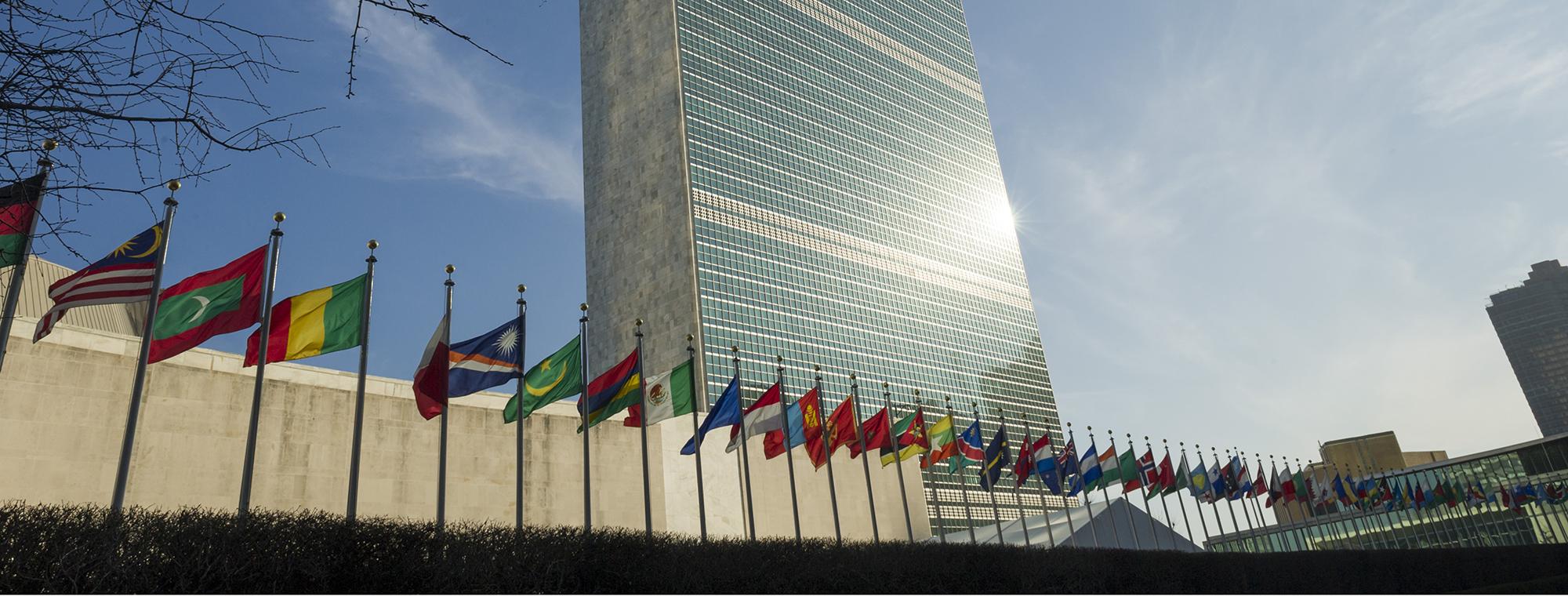Update 9/20/2017: Today, at the United Nations, the Treaty on the Prohibition of Nuclear Weapons opened for signature. It is legally binding on those nations that join it.
In an over-crowded, saturated news market in early July -- including a new long-range missile test by North Korea -- an historic achievement toward eliminating nuclear weapons was largely absent from the headlines. On July 7, 122 nations at the United Nations in New York adopted the new Treaty on the Prohibition of Nuclear Weapons. For the first time since the introduction of the atomic bomb in 1945, nuclear weapons — like biological and chemical weapons — are now banned by a legally binding international agreement. Ploughshares Fund is proud to support The International Campaign to Abolish Nuclear Weapons (ICAN) [1] in this endeavor.
A majority of nations in the world, nations who do not have nuclear weapons but would suffer immensely from their use, supported the Treaty. In a stunning rebuke to the nuclear-armed states, these nations have condemned the very possession of the most destructive weapons ever invented.
Here is a map of Treaty support [2]. Supporters are in yellow and 9 nuclear weapons states are in red.

The Treaty is the latest international legal instrument forming the global nuclear disarmament and non-proliferation regime. Others include the 1968 Nuclear Non-Proliferation Treaty, the 1996 Comprehensive Nuclear Test Ban Treaty, bilateral US-Russian arms control agreements and regional Nuclear Weapons Free Zones.
We believe the new Treaty is a powerful reminder of nuclear-armed states' obligation under the Non-Proliferation Treaty to negotiate disarmament, and further strengthens non-proliferation efforts. If those nations with nuclear weapons, such as the United States, continue to ignore their disarmament commitments and dismiss this new Treaty, they will undermine efforts to stop the spread of these weapons, and nuclear risks will grow.
The nine states that possess nuclear weapons (the United States, Russia, China, France, the United Kingdom, India, Pakistan, Israel and North Korea) did not attend the negotiations and are not expected to sign the Treaty. Thus the Treaty will not eliminate nuclear weapons in the short term. But in the long term, we hope that the Treaty will further delegitimize nuclear weapons, strengthening efforts to stop their spread and ultimately achieve a world free of the existential threat that they pose to humankind.
We fund a variety of strategies and initiatives to achieve our long-term goal of a world without nuclear weapons. The work of ICAN, together with that of world governments and other civil society organizations, was instrumental in the conception of the United Nations' treaty to formally ban nuclear weapons. If you'd like to see more of this work come to fruition, please consider making a monthly donation today.
Nuclear weapons are now banned by a legally binding international agreement: #NuclearBan.
Post to Twitter [4]

